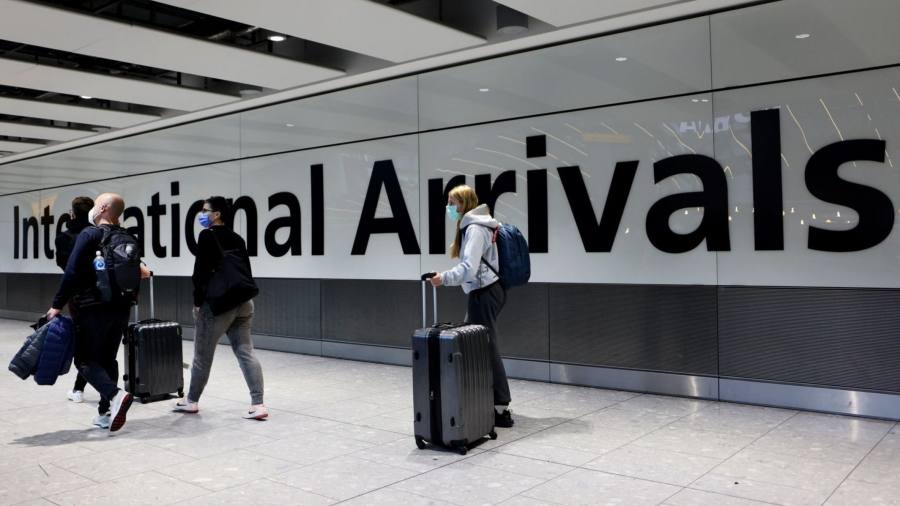
The British government said on Thursday it was reviewing whether to carry out coronavirus checks on arrivals from China, as pressure mounted on prime minister Rishi Sunak to act.
Downing Street insisted there were no plans “at the moment” to reimpose controls; such a move would be likely to add to airport congestion during a period of strikes by Border Force staff.
But senior Tories said controls at airports on arrivals from China could help detect new Covid variants, an approach now being deployed in Italy but so far rejected by other EU countries.
Former health minister Lord James Bethell said that post-flight surveillance of arrivals from China to check for new variants was “sensible”.
Steve Brine, Tory chair of the Commons health committee, added that many people felt the government should “over-, not underreact” to the escalating crisis in China, which has abruptly ended its zero-Covid policy.
“I think we need to be circumspect,” he told the BBC. “Where there is a threat, surely we have to make sure we control our borders.”
The UK shares the view of France, Germany and other EU countries that for now there is no justification for new checks.
One government official said that Britain had already experienced the Omicron wave gripping China, adding: “Our vaccines work and our vaccination rate is superb.”
However, the decision to review possible new controls contrasts with the UK government’s previous insistence that restrictions are “not something we are looking at”.
The UK’s Health Security Agency is monitoring the prevalence and spread of harmful variants and Downing Street said it would take into account all available international data.
Steve Barclay, health secretary, met the UKHSA on Thursday to discuss the situation.
British officials played down the prospect of any immediate change of policy unless the data change, noting that most EU countries were adopting a similar approach.
On Thursday the bloc rejected an Italian demand to reimpose travel restrictions on arrivals from China despite a warning by prime minister Giorgia Meloni that Rome’s new mandatory testing would be “ineffective if it is not followed at a European level”.
Instead, the EU’s health and security committee, made up of member state officials, agreed to co-ordinate national responses and “continue our discussions”.
The European Commission, which convened the meeting, said: “We remain vigilant and will be ready to use the emergency brake if necessary . . . to reintroduce restrictions.”
The reservations shown by the UK and some EU states about new Covid checks contrast with the US and countries such as India and Japan, which this week have all imposed testing requirements for Chinese arrivals.
But Sunak has been a hawkish figure throughout the pandemic. As chancellor of the exchequer, he opposed what he considered to be excessive Covid restrictions which would damage the economy.
The reintroduction of Covid controls in Britain — even in limited circumstances — could have a chilling effect on an already weak economy.
Brine said ministers would be conscious that if they ordered checks on arrivals from China, they would face demands to carry out similar tests on travellers from countries providing equally poor data on the virus.
“I trust Rishi Sunak to make the right decision for our country,” he added. “If that causes political discomfort, so be it.”
A UK government spokesperson said: “We are keeping the situation under review and the UK Health Security Agency are monitoring the data. At the moment there are no plans to introduce any new Covid-19 testing for arrivals.”